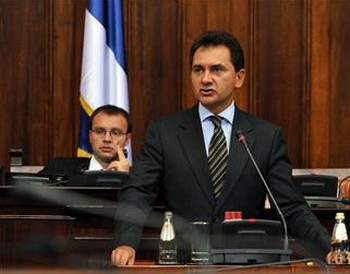- Serbia
Get to know Serbia
- Citizens
Culture and science
Health services
Pension and disability insurance
- Business
Employment
Economy
- Media
- Government
- Contact
Keep in touch
Contact form
Back
Keepin touch
Whether you have a question, comment, suggestion or any problem in the purview of the government, send us your message and we will try to respond as soon as possible. If your problem is not in our purview, we will forward your message to the relevant institution.
Q:
A:
With restitution to a modern state respectful of private property
Belgrade,
21 September 2011
Deputy Prime Minister for European integration Bozidar Djelic today stated that by adopting the Bill on restitution and indemnification, Serbia will be recognised as a modern state respectful of private property.
Elaborating on the Bill at the Serbian Parliament, Djelic stressed that its adoption will correct the historic injustice and that legal security will be restored in the state, and investment climate improved.
The Deputy Prime Minister recalled that the adoption of this Bill is one of the preconditions for Serbia’s acquisition of EU candidate status.
When drafting legal solutions, care was taken to correct the injustice towards a number of families, to respect the legally obtained property of present owners and to harmonise the law with the available property and financial resources of the country.
Djelic explained that all property confiscated after the World War Two will be returned, adding that it includes real estate, companies and movable items, as well as construction and agricultural land.
The Bill gives priority to restitution in kind whenever possible, while in other cases, former owners will receive indemnification in money and bonds at the current market value, Djelic said, noting that the bonds will be issued in Euros.
Citizens above 70 will be able to collect the bonds within five years, he observed, adding that the right to restitution will not apply to foreign nationals who were members of the occupying forces, while rehabilitated persons will be entitled to it.
Conditions for restitution will be the same for all categories of population, and once the Bill is adopted, the sale of this property will be forbidden, especially in the process of privatisation, he underlined.
Djelic noted that the Bill envisages exceptions to restitution, which are no different in Serbia than in other countries. In this sense, buildings currently occupied by the police, hospitals, schools and the Court in Dedinje will be excluded from restitution.
The Deputy Prime Minister recalled that the adoption of this Bill is one of the preconditions for Serbia’s acquisition of EU candidate status.
When drafting legal solutions, care was taken to correct the injustice towards a number of families, to respect the legally obtained property of present owners and to harmonise the law with the available property and financial resources of the country.
Djelic explained that all property confiscated after the World War Two will be returned, adding that it includes real estate, companies and movable items, as well as construction and agricultural land.
The Bill gives priority to restitution in kind whenever possible, while in other cases, former owners will receive indemnification in money and bonds at the current market value, Djelic said, noting that the bonds will be issued in Euros.
Citizens above 70 will be able to collect the bonds within five years, he observed, adding that the right to restitution will not apply to foreign nationals who were members of the occupying forces, while rehabilitated persons will be entitled to it.
Conditions for restitution will be the same for all categories of population, and once the Bill is adopted, the sale of this property will be forbidden, especially in the process of privatisation, he underlined.
Djelic noted that the Bill envisages exceptions to restitution, which are no different in Serbia than in other countries. In this sense, buildings currently occupied by the police, hospitals, schools and the Court in Dedinje will be excluded from restitution.
-
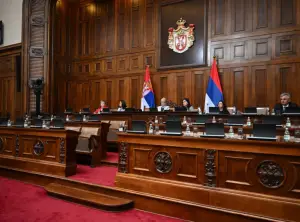 Belgrade, 7 November 2025
Belgrade, 7 November 2025Parliament adopts multiple laws
-
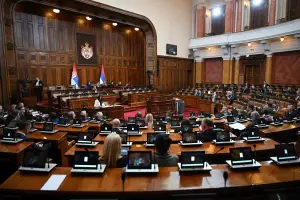 Belgrade, 22 October 2025
Belgrade, 22 October 2025Parliament adopts several laws, ratifies multiple international agreements
-
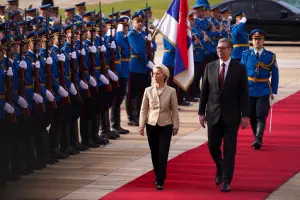 Belgrade, 15 October 2025
Belgrade, 15 October 2025Vučić welcomes Ursula von der Leyen in front of Palace of Serbia
-
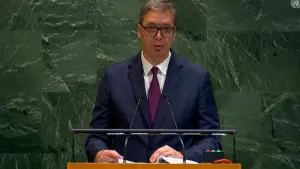 Belgrade/New York, 24 September 2025
Belgrade/New York, 24 September 2025Respect for UN Charter obligation of all countries
-
 Belgrade, 13 August 2025
Belgrade, 13 August 2025High level of understanding, agreement between Serbia, Austria
-
 Belgrade, 13 May 2025
Belgrade, 13 May 2025Serbia's sincere, firm commitment to European path, reforms and dialogue
-
 Belgrade, 13 May 2025
Belgrade, 13 May 2025Vučić welcomes European Council President in front of Palace of Serbia
-
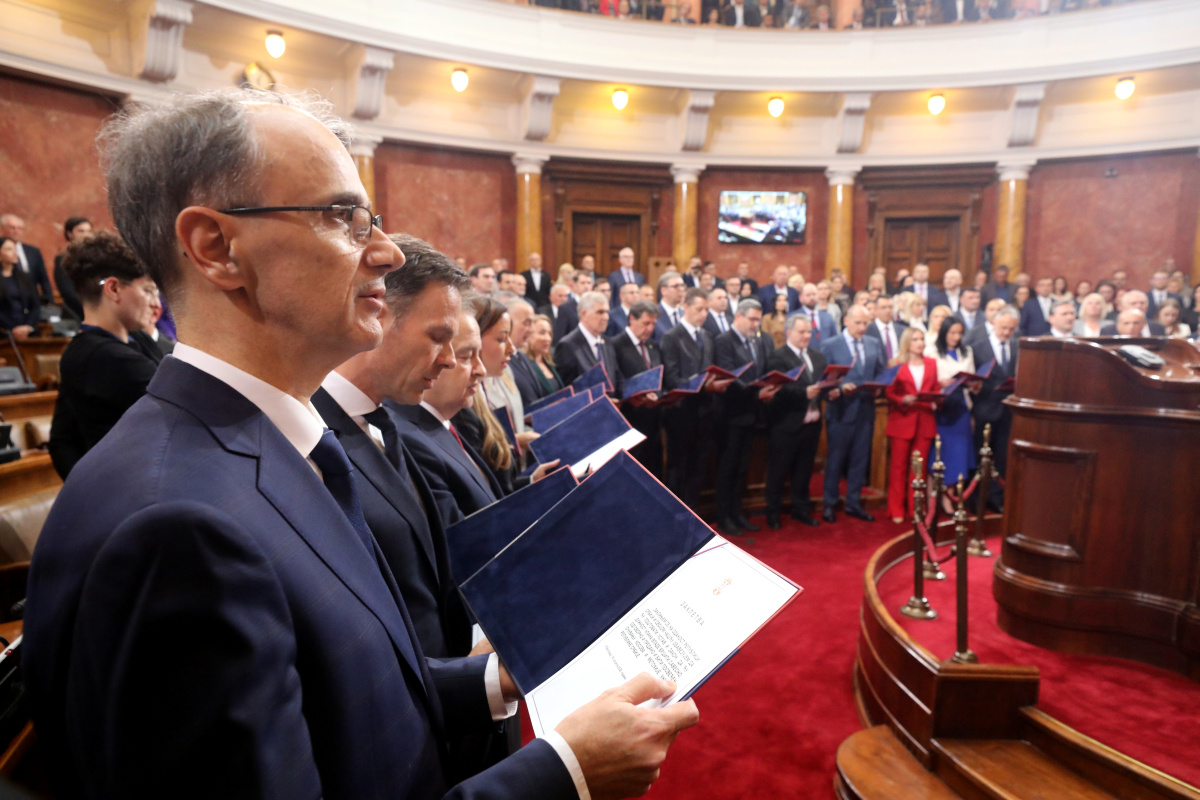 Belgrade, 16 April 2025
Belgrade, 16 April 2025New Serbian government voted in
-
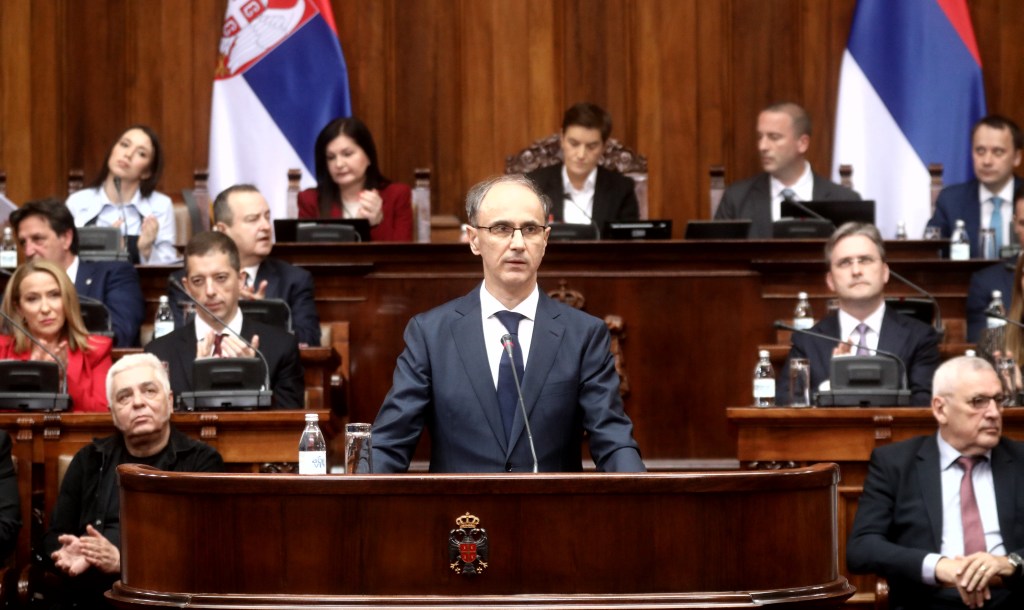 Belgrade, 15 April 2025
Belgrade, 15 April 2025Building unity through dialogue, tolerance, respect for value system
-
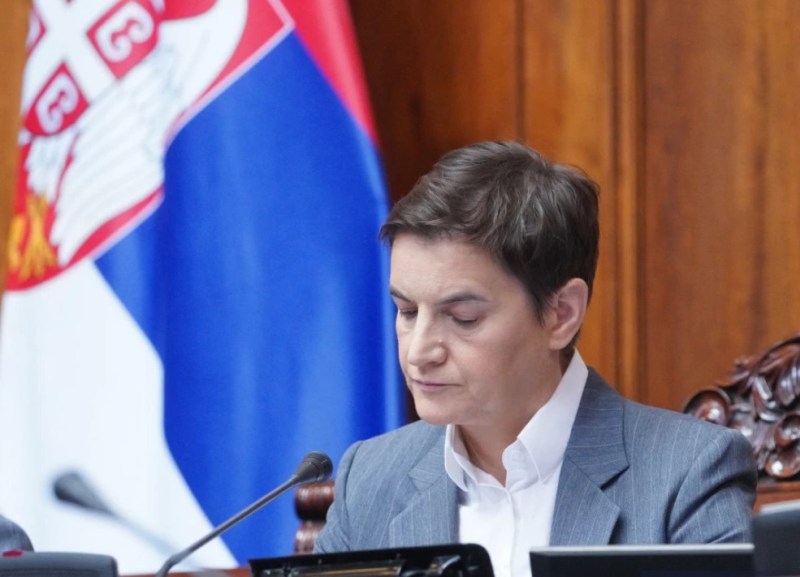 Belgrade, 14 April 2025
Belgrade, 14 April 2025National Assembly speaker convenes session on government election

